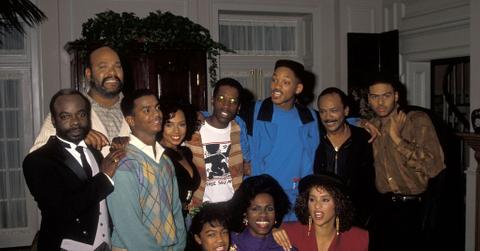
The Golden Era of Black Television Shows
Journey through the iconic Black sitcoms that defined television's golden era, celebrating family, challenging norms, and inspiring generations.
By Audrey MaloneDec. 25 2023, Published 9:18 p.m. ET
Welcome to the golden era of Black television shows, a transformative period spanning from the 1960s to the early 2000s. This era witnessed a remarkable surge in Black sitcoms, shaping the cultural landscape while fostering representation. Black TV shows often broke barriers by depicting successful Black families and challenging stereotypes.
As long as there have been Black actors and actresses, Black TV shows have been impacting the industry in proud ways. In 2017, The Hilltop noted in an article about Black TV that "Black television gave those watching and participating the opportunity to see African-American representation in roles that were often played by other actors. Audiences were able to see Black actors play roles such as doctors, judges, professors and other working professionals.
These shows depicted African Americans in a positive light and relayed the message that people of color can succeed regardless of others’ low expectations. After watching these shows, many individuals wanted to attend college, build families or set goals for certain career paths." Today this tradition is more alive and well than ever before!
Black TV Shows from the Past and Their Cultural Significance Today
Black TV shows have influenced cultural narratives, offering representation, and breaking stereotypes. These shows highlight diverse perspectives, reflecting the richness of Black experiences. By featuring Black families and characters in various roles, from professionals to everyday individuals, they challenge preconceptions.
A Few of The Greats
- ‘Julia’ (1968-1971): In 1968, Julia hit the screens as one of the first sitcoms featuring a Black family. It stood out because it broke the mold by putting a Black woman at the center of the story without making her play a submissive role. Diahann Carroll played Julia Baker, a single mom working as a nurse, and her kid Corey, in a regular suburban neighborhood.
- ‘Good Times’ (1974-1979): Good Times was like a snapshot of many Black families in America back then. It started in 1974, marking the start of a golden era for Black sitcoms. With Esther Rolle and John Amos as the parents of three offspring, the show captured the ups and downs that Black families all over the US dealt with every day.
- The Jeffersons (1975-1985): The Jeffersons is all about George (played by Sherman Hemsley) and Louise (played by Isabel Sanford) Jefferson and their fresh start in a fancy East Side high-rise after leaving Queens. When TV was stuck showing bad stereotypes, this show stood out by showing a caring African-American family moving on up in the world.
- Family Matters’ (1989-1997): Remember Steve Urkel from Family Matters? That show went on for a solid nine seasons and went through a bunch of changes all of which exemplified the highs and lows of living as a Black American. It spun off from Perfect Strangers and centers on police officer Carl Winslow, his wife Harriette, and their family in Chicago.
- ‘Martin’ (1992-1997): Martin Lawrence plays the main guy, Martin, in this series. It is all about this confident but often troublesome DJ living with his girlfriend-turned-wife, Gina (played by Tisha Campbell), who somehow puts up with his quirks. They, along with their friends Tommy, Pam, and Cole, end up in a cluster of funny situations.
- The Fresh Prince of Bel-Air' (1990-1996): Will Smith stars as a version of himself on the show. His mom ships him off to live with Uncle Philip Banks (played by the late James Avery) and Aunt Vivian (first Janet Hubert, then Daphne Maxwell Reid). Will then hangs out with his cousins Carlton, Hilary, and Ashley, and they get up to all sorts of mischief.
The Impact of Black Sitcoms
This list does not even scratch the surface because many more Black TV shows deserve recognition like Sanford & Son, Moesha, In Living Color, A Different World, Living Single, That’s So Raven, and so many more.
Black TV shows give you a real-life view from a Black perspective. They break stereotypes and add variety to what you watch. Forget the usual stuff and check out Black shows—they are more than just entertainment. Black sitcoms shake things up and show that Black stories are worth celebrating.

